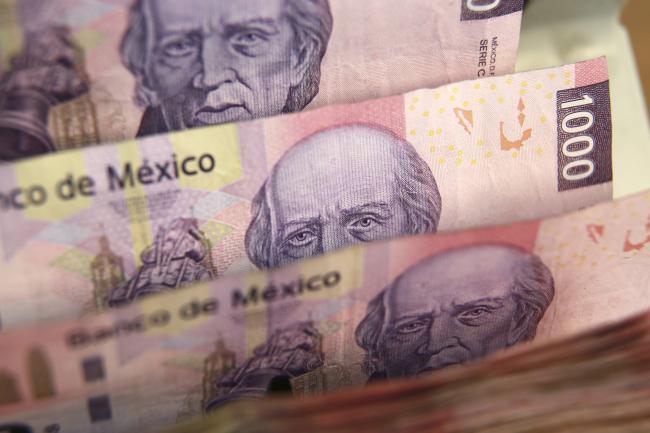(Bloomberg) -- The year started off brilliantly for Mexico’s peso. Same for Colombia’s. By the end of January, both had soared more than 5 percent. No other currency in the world, save Norway’s krone, was hotter than the pesos.
The reasons for the gains were different -- Colombia’s peso was up on surging oil, Mexico’s on optimism that Nafta renegotiation talks were going well -- but the implicit, underlying message in the rallies was the same: Investors weren’t worried about upcoming presidential elections.
That confidence seems to be wavering, especially in Mexico. The peso there plunged 4.9 percent in just five days in April as leftist candidate Andres Manuel Lopez Obrador, known as AMLO, showed no signs of squandering his 20-point lead in polls before the July 1 vote. Mexico’s currency is one of the four worst performers in emerging markets since the end of March, losing 3.2 percent.
“The probability of AMLO winning is going up and his speeches remain radical,” said Shamaila Khan, the director of emerging-market debt at AllianceBernstein LP, who’s cautious on Mexico’s peso and bonds. “We don’t think the market is fully pricing in the election risk.”
Even in Colombia, where investors are more confident that the unconventional outsider -- the former guerrilla Gustavo Petro -- will be defeated, the rally has stalled as the May 27 vote nears. Polls show that the lead held by Ivan Duque, a close ally of former president and market-darling Alvaro Uribe, is narrowing.
Lopez Obrador has the support of 47 percent of potential voters, far ahead of runner-up Ricardo Anaya, with 27 percent, and third-place former Finance Minister Jose Antonio Meade, according to Bloomberg’s Poll Tracker. In Colombia, Petro trailed Duque by 10 percentage points in the most recent poll by Invamer, down from 19 points five weeks prior.
Investors are just waking up to the possibility that Lopez Obrador will not only win the presidency, but be able to cobble together a coalition of allies who could meld his most radical ideas into policies, Khan said. That could hurt Petroleos Mexicanos, which benefited from a recent overhaul of energy laws that stripped the state of its oil production monopoly. There’s also concern that his promised social spending could blow out the budget deficit.
While Lopez Obrador will probably moderate his platform after winning, Mexican assets could face short-term shocks, according to Jeff Grills, a money manager at Gramercy Funds, which oversees about $6 billion of emerging-market assets. That pessimism may eventually create a buying opportunity for longer-term investors akin to what happened after the brief global selloff following Donald Trump’s victory in November 2016. He’s more optimistic on Colombia.
In Brazil, the other major Latin American country holding elections this year, things have been rockier for the currency. After a brief January rally, it’s down 7.8 percent, in part on concern that October’s vote could produce a new government less committed to shoring up the country’s fiscal outlook.
Colombia’s peso is still the biggest gainer in emerging markets this year, up 6.7 percent. And while it’s down 0.2 percent since the end of March, that’s still one of the world’s best performances.
“It’s not keeping me up at night,” said Grills, who’s overweight Colombian assets and neutral on Mexico’s peso. He says Colombia’s proximity to the economic and social disasters in socialist-run Venezuela will push voters away from radical politics.
“The desire for purely populist policies -- especially in Colombia -- is quite low,” he said.
(Updates Mexican peso’s month-to-date move in 3rd paragraph.)
